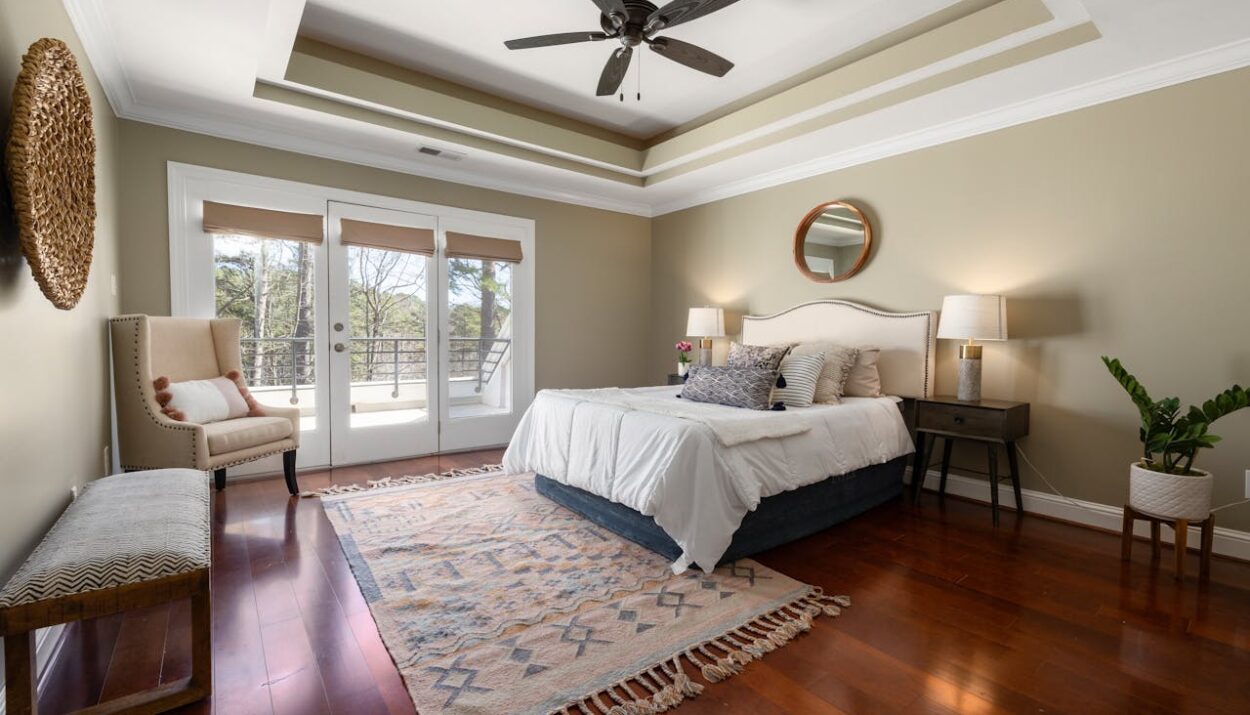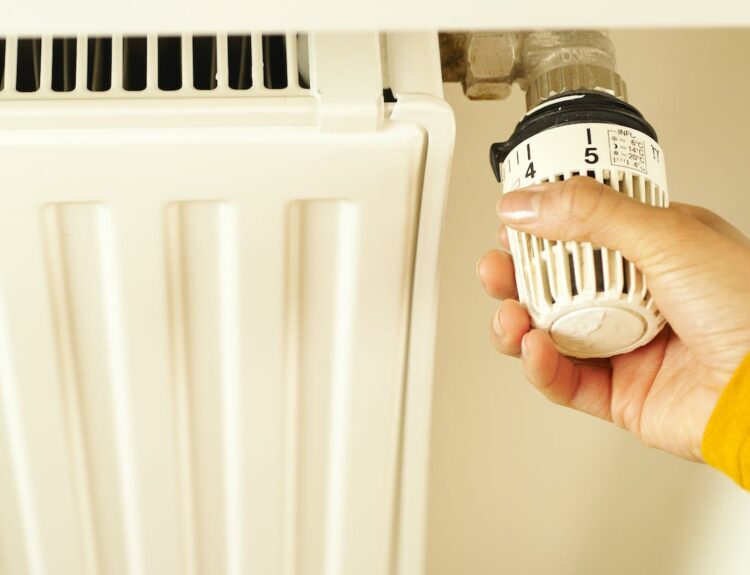Why is my carpet wet in my bedroom? Have you ever awakened to the unpleasant sensation of stepping onto a damp carpet in your bedroom? If so, you’re not alone. Beyond mere inconvenience, a wet carpet in the bedroom can profoundly impact sleep quality and overall well-being. In this article, we delve into the mysteries behind this occurrence. From understanding the underlying causes to exploring the consequences on sleep quality and health, we uncover the importance of maintaining a dry and comfortable sleep environment.
Why is my carpet wet in my bedroom? Explore the causes and effects on sleep quality. Learn how to keep your sleep sanctuary dry and comfortable!
In this article:
- Why Is My Carpet Wet in My Bedroom? Understanding the Causes
- The Impact of a Wet Carpet on Sleep Quality: What You Need to Know
- Wet Carpets and Your Health: Understanding the Risks
- Protecting Your Sleep Sanctuary: Dealing with a Wet Carpet in Your Bedroom
- Tips for Preventing a Wet Carpet in Your Bedroom
WHY IS MY CARPET WET IN MY BEDROOM? UNDERSTANDING THE CAUSES
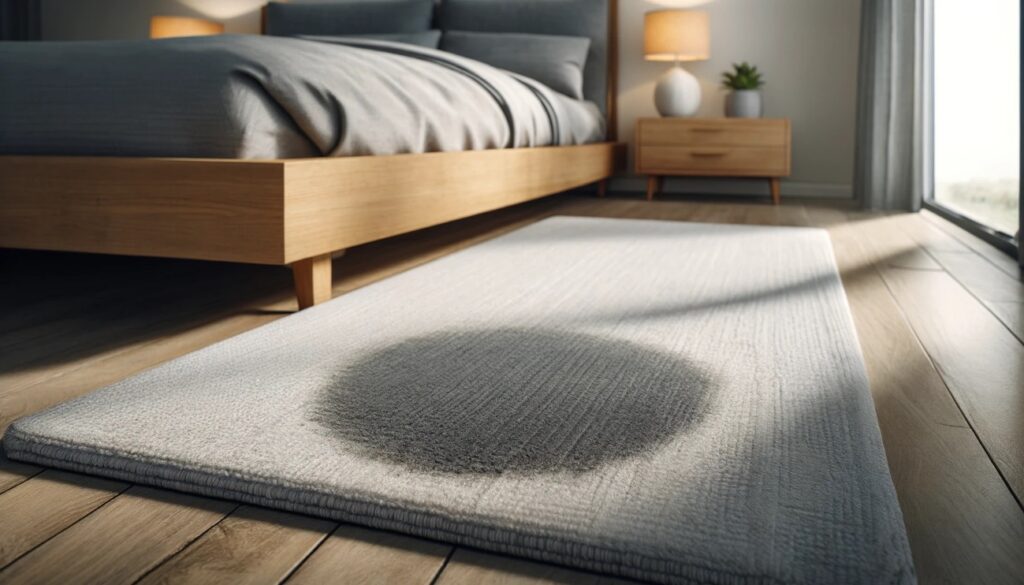
A wet carpet in your bedroom can be a concerning issue, but understanding its causes is the first step toward finding a solution. Several factors can contribute to a wet carpet, ranging from everyday household mishaps to more serious structural issues.
One of the most frequent culprits is accidental spills. Liquids can quickly seep into the carpet fibers, whether a knocked-over drink or a pet’s water bowl, leading to saturation and dampness. Similarly, leaks from plumbing fixtures, such as pipes, faucets, or water heaters, can introduce water into the bedroom environment, resulting in a wet carpet.
Condensation is another common cause, especially in areas with high humidity levels. When warm air meets colder surfaces, such as a cold floor or window, it can condense into water droplets, which may accumulate on the carpet over time.
In more severe cases, flooding from external sources like heavy rainfall or internal issues like burst pipes can inundate the bedroom, leaving the carpet soaked and waterlogged.
Furthermore, structural problems such as cracks in the foundation or poorly sealed windows and doors can allow water to infiltrate the room, leading to a wet carpet.
Whether it requires simple cleanup and drying or a professional intervention to repair the underlying problems, understanding the root cause is essential for restoring a dry, comfortable living space.
THE IMPACT OF A WET CARPET ON SLEEP QUALITY: WHAT YOU NEED TO KNOW
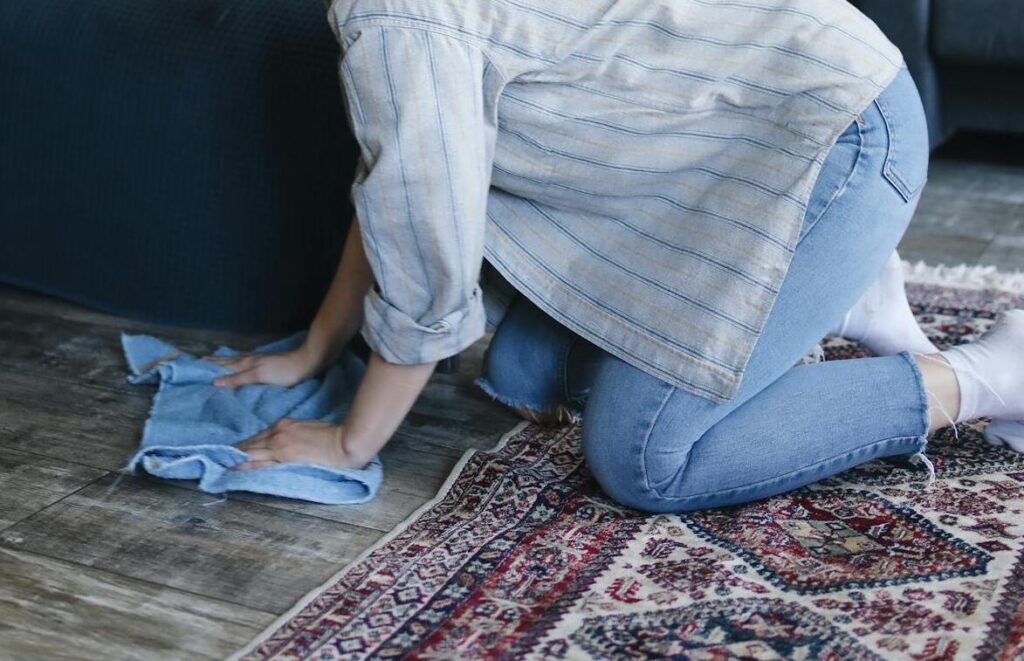
A wet carpet in the bedroom can significantly impact sleep quality and overall health, creating discomfort and potential hazards that disrupt your restful slumber.
The presence of moisture in the bedroom creates conditions conducive to mold and mildew growth. These allergens can exacerbate respiratory issues such as asthma and allergies, leading to discomfort and difficulty breathing during sleep.
Furthermore, the dampness and musty odor associated with a wet carpet can disrupt the relaxation needed for quality sleep, causing individuals to wake up feeling groggy and unrested. Sleep disturbances from a damp carpet may also contribute to mood swings, irritability, and decreased cognitive function during the day, affecting overall productivity and well-being.
Additionally, the psychological impact of sleeping in an environment perceived as unhealthy or unclean can exacerbate stress and anxiety levels, further compromising sleep quality and mental health.
Moreover, excess moisture can attract pests like dust mites and cockroaches, which thrive in damp environments. These pests further aggravate allergies and respiratory issues.
Wet carpet in the bedroom poses physical health risks and significantly affects sleep quality and overall well-being.
WET CARPETS AND YOUR HEALTH: UNDERSTANDING THE RISKS
Sleeping in a room with a wet carpet may pose significant health risks because of the possible growth of mold, mildew, and other allergens that thrive in damp conditions.
Mold spores released into the air may cause allergic responses and worsen respiratory conditions such as asthma and allergies, leading to symptoms like coughing, wheezing, and nasal congestion. Prolonged exposure to these allergens during sleep can result in chronic respiratory issues and compromise overall respiratory health.
Moreover, mold and mildew can also produce mycotoxins. These toxic substances can cause various health problems, including headaches, fatigue, and skin irritation. In severe cases, exposure to mycotoxins can lead to more serious health conditions, such as neurological disorders and immune system suppression.
In addition to respiratory problems, sleeping in a room with a wet carpet can also impact mental health. The discomfort and stress of sleeping in an environment perceived as unhealthy or unclean can lead to increased anxiety levels and worsen existing mental health conditions.
So, address the issue promptly and effectively to restore a comfortable and healthy sleep environment.
PROTECTING YOUR SLEEP SANCTUARY: DEALING WITH A WET CARPET IN YOUR BEDROOM
Protecting your sleep sanctuary from the impact of a wet carpet in your bedroom is crucial for maintaining a healthy living environment. Dealing with this issue promptly and effectively requires a proactive approach and implementing appropriate measures.
The first step in addressing a wet carpet is to eliminate the source of moisture. If the wetness is due to a spill or leak, promptly clean up the affected area and address any underlying plumbing issues.
Next, dry the carpet thoroughly to prevent mold and mildew growth. Use fans, dehumidifiers, and open windows to increase air circulation and promote evaporation. Consider renting professional-grade drying equipment for more severe cases or seeking assistance from water damage restoration specialists.
Once the carpet is dry, thoroughly clean and disinfect it to remove any remaining contaminants. Use appropriate products and techniques recommended for carpet cleaning to ensure adequate sanitation.
To prevent future incidents of a wet carpet, take proactive measures such as avoiding placing liquids near the carpeted area, promptly addressing any spills or leaks, and maintaining proper humidity levels in the bedroom.
Regular carpet maintenance and vigilant monitoring for signs of moisture or water damage are essential for protecting your sleep sanctuary in the long term.
By taking these proactive steps and implementing appropriate measures, you can effectively deal with a wet carpet in your bedroom and restore a comfortable and healthy sleep environment for optimal rest and well-being.
Why You Should Have a Dehumidifier
Investing in a high-quality dehumidifier, such as the SAMSICHI Dehumidifier, can offer numerous benefits for maintaining a healthy and comfortable living environment. Here’s why:
- Effective Moisture Control: Dehumidifiers help regulate indoor humidity levels, preventing excess moisture buildup that can lead to mold, mildew, and dampness. The SAMSICHI dehumidifier utilizes advanced semiconductor dual condensation technology to quietly and effectively remove moisture from the air, ensuring a dry and comfortable atmosphere in your home.
- Improved Air Quality: Dehumidifiers can improve indoor air quality by reducing humidity. They help minimize the growth of allergens like mold and dust mites, which thrive in moist environments. It leads to cleaner and healthier air for you and your family to breathe.
- Enhanced Comfort: Excess humidity can make indoor spaces feel stuffy and uncomfortable, especially during hot and humid weather. A dehumidifier helps create a more pleasant and comfortable living environment by eliminating that clammy feeling and reducing the need for air conditioning.
- Prevention of Water Damage: Moisture accumulation can damage furniture, electronics, and other belongings and cause structural problems like warped wood and peeling paint. A dehumidifier extracts excess moisture, shielding your home from potential water damage and costly repairs.
- Versatile Use: The SAMSICHI dehumidifier is compact and portable, making it suitable for use in various home areas, including bedrooms, bathrooms, living rooms, closets, and even RVs. Its quiet operation and multiple working modes ensure uninterrupted use, whether sleeping or going about daily activities.
Consider investing in a quality dehumidifier for a healthier, more comfortable, and enjoyable living space for you and your loved ones.
TIPS FOR PREVENTING A WET CARPET IN YOUR BEDROOM
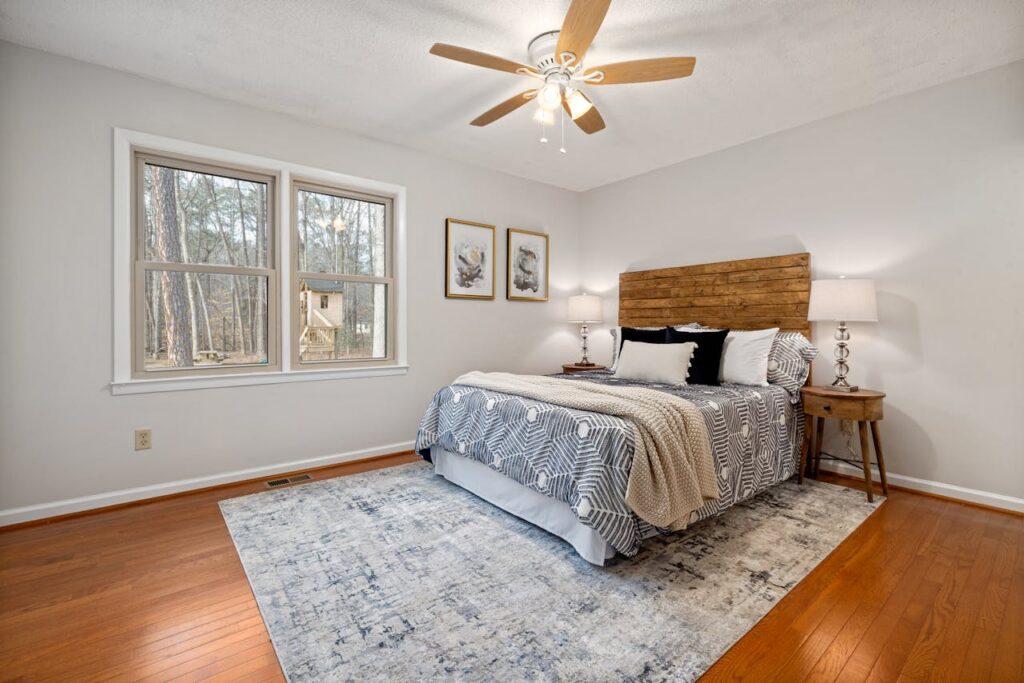
Implement these tips to maintain a dry and comfortable sleep environment and avoid a wet carpet’s inconvenience and health hazards:
- Avoid placing liquids near the carpeted area and use coasters or trays under potted plants to catch excess water.
- Regularly inspect plumbing fixtures for leaks and handle any issues promptly to avoid water infiltration.
- Use a dehumidifier to regulate indoor moisture levels, especially in areas prone to high humidity, to regulate indoor moisture levels and prevent dampness.
- Inspect for signs of water infiltration, such as leaks from windows or doors, and seal any openings or crevices to block water from entering the room.
- Consider installing waterproof flooring or using area rugs that can be easily removed and dried in areas prone to flooding or water damage.
- Invest in a quality carpet pad or underlayment to protect against spills and moisture penetration. These pads or underlays help absorb moisture and prevent it from reaching the carpet fibers.
_____
Taking action is paramount when addressing a wet carpet in your bedroom. Remember, every proactive step, whether avoiding placing liquids near carpeted areas, regularly inspecting plumbing fixtures, or investing in a quality carpet pad and dehumidifier, helps create a dry and comfortable sleep environment. Take action today for a more restful tomorrow!
This post may contain affiliate links. You can read the affiliate disclosure here.

